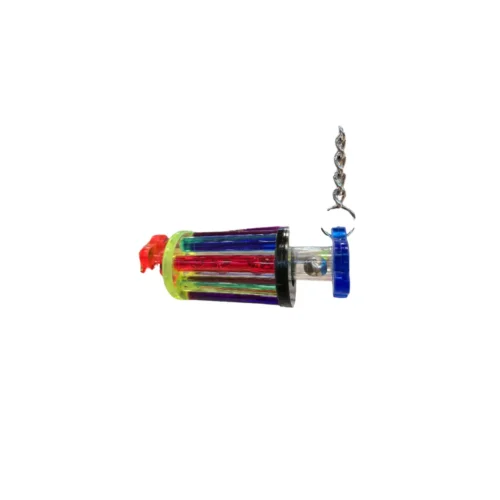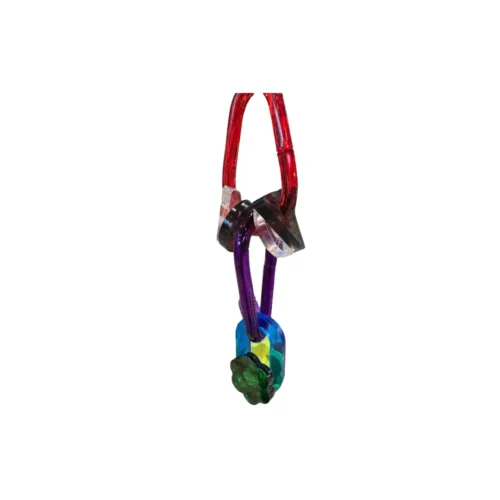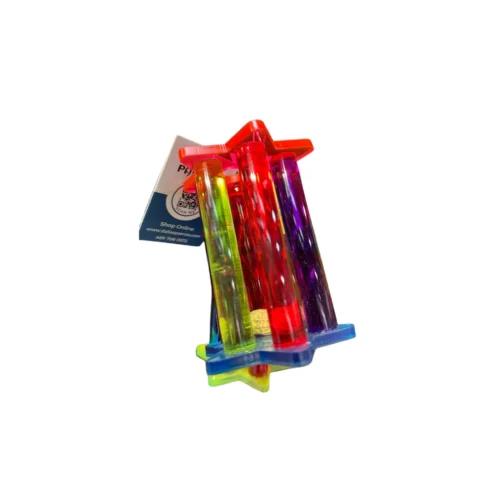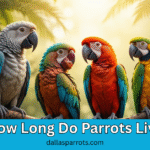
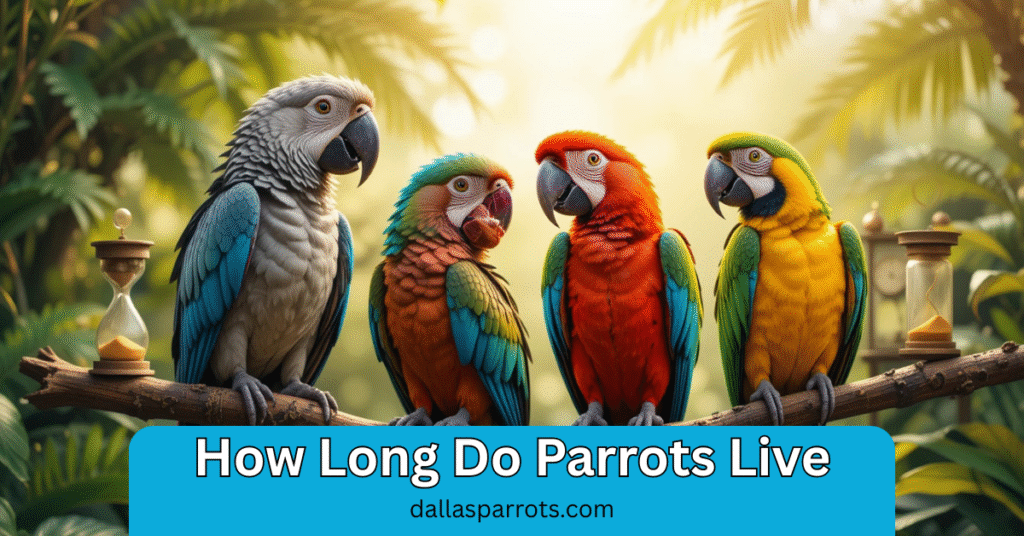
How Long Do Parrots Live? Lifespan by Size, Species & Care Tips
How long do parrots live is a question that surprises many pet lovers because these birds are among the longest-living companions you can have. Their colorful feathers, intelligence, and ability to mimic speech make them fascinating pets, but their impressive lifespan often comes as a shock. Some species, like African Greys, can live over 50 years, while macaws may reach 60 to 80 years or more.
Knowing how long parrots live is not just interesting trivia it’s essential for knowing the level of commitment required. A parrot is not a short-term pet but a lifelong friend who may share decades of your life. By learning about their lifespan, you can plan proper care, nutrition, and a loving environment that allows your feathered companion to thrive for years to come.
Average Lifespan of Popular Parrot Species
| Lifespan Range | Species |
| ~50–60 years (or longer) | Timneh African Grey, Congo African Grey, Cape Parrot |
| ~40–80 years | Moluccan cockatoo, Goffin cockatoo, Bare-eye cockatoo, Major Mitchell cockatoo, and Rose-breasted cockatoo |
| ~50–80 years (Macaws) | Blue-and-Gold, Green-Wing, Scarlet, Blue-headed, Hyacinth, Hybrid, Hahn’s Macaw |
| ~25–40 years | Dusky Conure, Jenday Conure, Black Cap, Blue Crown, Golden, Green-cheek, Half Moon, Sun, Crimson-bellied Conures; Alexandrine & Indian Ringneck Parakeets; Black-headed & White-bellied Caiques; Red‑sided, Solomon Island & Vosmaeri Eclectus |
| ~20–30 years | Quaker (Monk) Parrot; Meyers, Red Belly, Senegal, Rueppells Poicephalus; Rainbow Lory |
| ~10–20 years | Cockatiel; Bourke & Lineolated Parakeets; Fischer’s, Black Mask & Peach‑face Lovebirds |
Parrot Lifespan by Size from Dallas Parrots
| Size Category | Species Examples | Typical Lifespan |
| Small Parrots | Budgerigars, Parakeets | 5–18 years (avg. ~7–10) |
| Medium Parrots | Cockatiels, Lovebirds, Conures | 10–30 years (cockatiels often 10–25) |
| Large Parrots | African Greys, Macaws, Cockatoos | 25–60 years (often 40–60+, some beyond 80) |
Tips to Maximize Your Parrot’s Life
Owning a parrot means committing to its well-being for many years, sometimes even decades. Parrots are highly intelligent and sensitive birds, which means their physical health and emotional happiness depend on how well they are cared for. Simply feeding them or giving them a cage is not enough; they need proper nutrition, mental stimulation, and a safe, loving environment to thrive. By focusing on their diet, living space, regular check-ups, and playtime, you can ensure your parrot enjoys a long, healthy, and joyful life.
Provide a Balanced, Species-Appropriate Diet
The diet of your parrot has a direct impact on its health.Fresh fruits, vegetables, high-quality pellets, and a small amount of seeds form the base of a healthy meal plan. Avoid processed foods, chocolate, caffeine, or salty snacks, as these can harm your bird. Different parrot species have different nutritional needs, so it’s important to know what foods are best for your specific bird. A well-balanced diet not only boosts their energybut also strengthens their immune system and enhances feather health.


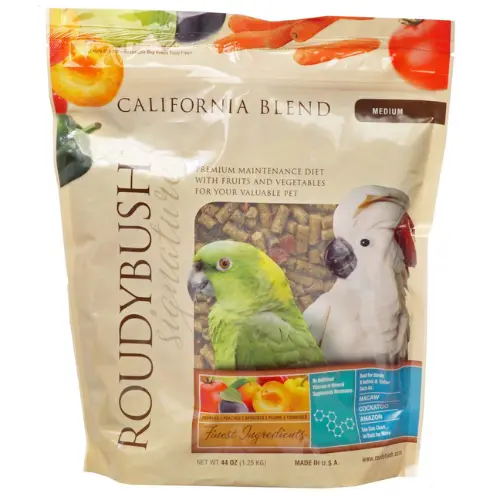

Intune Duets Chickpeas & Banana
Offer Spacious, Safe, Stimulating Environments
A cage that is too small can lead to frustration, stress, and health problems in parrots. hey need plenty of room to flap their wings, climb, and explore. Add natural wood perches, climbing ropes, and interactive toys to create a fun and engaging space. Make sure the environment is safe by avoiding sharp objects, toxic plants, or unsafe metals. A stimulating and safe environment keeps your parrot happy and reduces behavioral issues caused by boredom.
Schedule Regular Avian Vet Check-Ups
Just like humans, parrots need regular medical care to stay healthy. Many illnesses in birds go unnoticed because they hide symptoms, so annual vet visits are essential. A qualified avian vet can perform health checks, trim nails or beaks, and give advice on diet and grooming. These regular check-ups help detect early health problems, making it easier to treat them before they become serious. Preventive care is key to ensuring your parrot lives a long, happy life.
Encourage Mental and Physical Activity with Toys and Social Play
Parrots are playful and intelligent creatures that need daily interaction to stay happy. They may become bored or stressed out in the absence of stimulation, which can result in harmful behaviors. Provide chewable toys, puzzles, and climbing activities to keep their minds sharp. Spend time talking to them, teaching tricks, or letting them explore outside their cage under supervision. Social play strengthens your bond and keeps your parrot both mentally and physically active.

Spinning Barbell Large
$18.95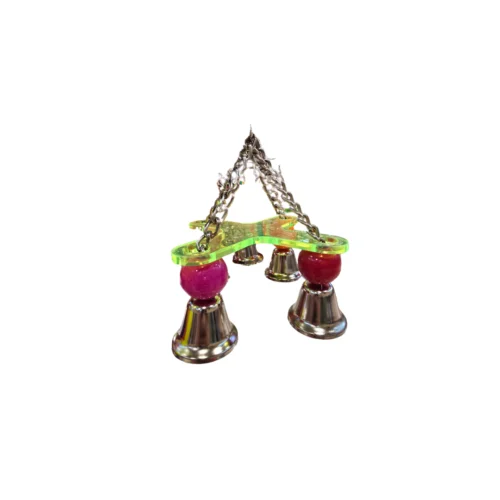
Chandelier Large
$22.95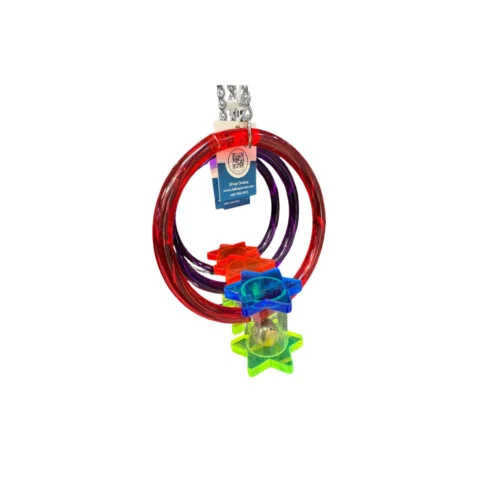
Swing A Ding Big Foot XL
$28.95Paddle Wheel XL
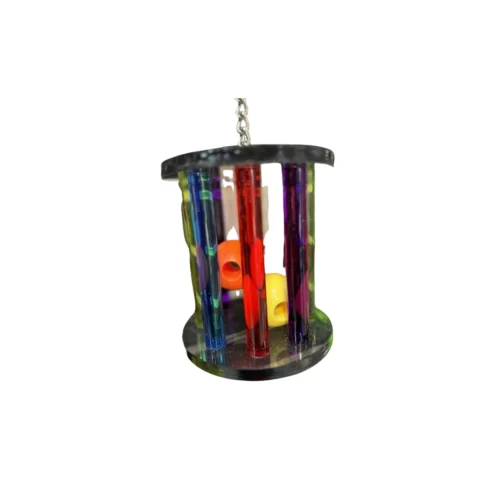
Ball Cage
$28.95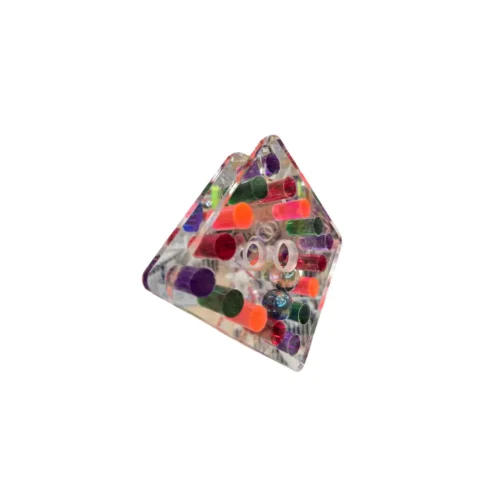
Big Box
$28.95Bangel
$32.95Peanut Jail
$10.95Stay formed: Each Species Has Unique Needs
Every parrot species is different, from their lifespan and diet to their personality and care requirements. For example, macaws need larger cages and more physical activity, while smaller birds like conures may need different food portions and play routines. Knowing your parrot’s specific needs allows you to provide the right care and environment. The more you know about your parrot’s breed, the better you can ensure they live a long, healthy, and happy life.
Why Parrot Lifespan Matters
Many people are drawn to parrots for their colors, intelligence, and ability to mimic speech. But few realize just how long parrots live, and why that matters so much. A parrot is not a short-term pet it’s a lifelong companion. Species like African Greys can live over 50 years, while macaws may reach 80 or more. This long lifespan affects everything: how you care for them, how you plan for their future, and how deeply you bond over time.
Hook readers with surprising longevity facts
When people wonder, “how long do parrots live,” they’re often shocked by the answer. Some large parrots like macaws and cockatoos can live for 60 to 80 years, and there have even been cases where parrots have lived beyond 90. That’s longer than many humans live. This kind of information immediately grabs attention. It changes how people view parrots not just as cute pets but as lifelong companions who may be around for generations. The idea that a bird can share most of your life, or even outlive you, is both fascinating and humbling. It’s a fact that surprises many and sets the stage for a deeper conversation about what it really means to care for these intelligent birds.
Emphasize long-term commitment and responsibility
knowing how long do parrots live also brings up the important topic of long-term care. These aren’t short-term pets. Bringing a parrot into your home means decades of responsibility. You have to think ahead who will care for your bird if you move, grow older, or pass away? Are you ready to build a bond that lasts 30, 40, even 60 years? These questions matter. Parrots develop strong emotional connections with their owners, and rehoming them due to lack of planning can be stressful and heartbreaking for the bird. Knowing their lifespan helps you approach parrot ownership with the seriousness it deserves.It’s a lifetime commitment rather than merely a pastime.
Parrot Care Method for a Long and Healthy Life
Taking proper care of a parrot means going beyond just feeding it and keeping it in a cage. Parrots are intelligent, emotional, and social creatures that need a balanced approach to health, environment, and bonding. Providing a clean, safe home, proper diet, mental stimulation, and medical care can make a huge difference in how long and how happily your parrot lives. Below are some key care tips every parrot owner should follow.
Create a Safe and Comfortable Living Space
Your parrot’s living environment plays a major role in its well-being. The cage should be spacious enough for the bird to spread its wings fully, climb, and explore without feeling cramped. Add perches, swings, and toys to keep the space engaging. Place the cage in a quiet but interactive area of your home, away from drafts and direct sunlight. Always ensure the cage is made of safe, non-toxic materials and free of sharp edges that could injure your bird.
Focus on Proper Nutrition and Hydration
A balanced diet is the foundation of a healthy, long-living parrot. Include fresh fruits, vegetables, and high-quality pellets while limiting seeds and fatty foods. Each parrot species has different nutritional needs, so it’s important to learn what diet best suits your bird. Always provide clean, fresh water and change it daily to avoid bacterial growth. A nutritious diet boosts vitality, maintains feather luster, and fortifies the immune system.
Ensure Regular Grooming and Hygiene
Parrots need regular grooming to stay comfortable and healthy. This includes nail trimming, beak maintenance, and sometimes feather care. Providing a shallow dish of clean water or a gentle spray mist for bathing helps keep feathers in excellent condition. To avoid infections, keep the cage clean by routinely cleaning the food dishes, toys, and perches. Good hygiene reduces the risk of illnesses and makes the living environment safe and pleasant for your bird.
Prioritize Mental Stimulation and Social Interaction
Because of their high level of intelligence, parrots need mental stimulation and social interaction to stay content. Destructive habits like excessive yelling or feather plucking might result from boredom.Introduce puzzle toys, foraging activities, and regular playtime to keep their minds active. Talk to your parrot, teach simple commands, and involve them in daily family activities. A strong emotional bond and consistent social interaction are just as important as physical health for a parrot’s well-being.
Plan Routine Health Check-Ups with an Avian Vet
Parrots often hide signs of illness, so preventive vet care is essential. Schedule annual check-ups with an experienced avian veterinarian to monitor your parrot’s health. These visits help identify potential health issues early and provide advice on diet, behavior, and grooming. If you notice changes in your bird’s eating habits, droppings, or behavior, consult a vet immediately. Regular health care ensures your parrot remains active, happy, and healthy for many years.
How Weather Affects Your Parrot’s Health and Well-Being
Weather plays a big role in your parrot’s comfort and health. Birds are sensitive to changes in temperature, humidity, and air quality. Extreme cold or heat can cause stress, illness, or even be life-threatening. Knowing how different weather conditions affect your parrot helps you create a safe and comfortable home. Adjusting their environment as seasons change is important to keep your bird happy and healthy all year round.
Ideal Temperature Range for Parrots
Most parrots thrive in temperatures between 65°F and 80°F (18°C to 27°C). This range is close to their natural tropical habitats where it’s warm but not too hot. Temperatures outside this range can make them uncomfortable or cause health problems. It’s important to keep their living area stable, avoiding sudden drops or spikes in temperature. Using room thermometers and heaters or fans can help maintain a steady, comfortable climate for your bird.
How Cold Weather Impacts Parrots
Cold weather can be very dangerous for parrots. Because birds have a higher metabolism and less body fat than mammals, they lose heat quickly. Cold drafts or low temperatures can weaken their immune system, making them prone to respiratory infections and other illnesses. In colder months, keep your parrot’s cage away from windows and doors, and consider using bird-safe heating pads or placing the cage in a warmer room to protect them from the chill.
Effects of Hot Weather and Heat Stress
Too much heat can also harm parrots. High temperatures and direct sunlight can cause dehydration, heat exhaustion, or heat stroke, which are serious and need quick attention. Make sure your bird always has fresh water and shade. Avoid placing the cage near windows with strong sun exposure or heating vents. Use fans or air conditioning if needed to keep the air cool and fresh, but avoid strong drafts that might cause stress.
Protecting Your Parrot from Drafts and Humidity
Drafts from open windows, air conditioners, or fans can make parrots sick because cold, moving air chills them quickly. Always check that your bird’s cage is in a spot safe from drafts. Humidity levels also matter very dry air can dry out their skin and respiratory system, while too much humidity can encourage mold and bacteria growth. Using a humidifier or keeping the cage in a well-ventilated area helps maintain healthy air quality.
Adjusting Care and Environment According to Seasons
Different seasons bring different challenges for your parrot’s care. In winter, focus on warmth, dry air, and added vitamins if needed. In summer, increase hydration, provide shade, and reduce heat exposure. Seasonal changes might also affect your bird’s mood and behavior, so watch for signs of stress or discomfort. By adjusting temperature, humidity, and care routines throughout the year, you can keep your parrot comfortable and healthy no matter the weather outside.
Why Dallas Parrots Is Your Trusted Partner for Healthy Parrots
Dallas Parrots is not just about selling birds it’s about raising happy, healthy companions that can bring joy to your life for decades. Every parrot here is hand-raised with care and attention from the very beginning, ensuring they are well-socialized, friendly, and ready to bond with their new family. They are not treated as just pets but as living beings that deserve love, respect, and proper care.
The team at Dallas Parrots goes the extra mile to ensure each bird is healthy and strong before finding its forever home. From balanced diets to regular health checks, every detail is carefully managed to give you a parrot that is active, vibrant, and full of life. They also offer guidance and support even after you bring your bird home, helping you understand its needs, behavior, and care routines.
Contact Us
We’re always here to help you with any questions about parrots, their care, or choosing the right companion for your home. At Dallas Parrots, we believe in guiding every bird lover with honest advice and support. Whether you’re looking for information on a specific species, need tips on care, or want to visit our aviary, feel free to reach out.
Conclusion
Parrots are not just pets they are lifelong companions that need care, attention, and love for many years. knowing how long parrots live helps you prepare for the responsibility and commitment that comes with bringing one into your home. With the right diet, a safe environment, and regular health check-ups, your parrot can live a long, happy, and healthy life.
At Dallas Parrots, every bird is raised with care to ensure they are healthy and ready for a loving home. If you are planning to welcome a parrot into your life, take the time to learn about their needs and create an environment where they can thrive. A well-cared-for parrot will not only live longer but will also bring endless joy and companionship for decades.
If you want more latest updates follow us our social accounts:





